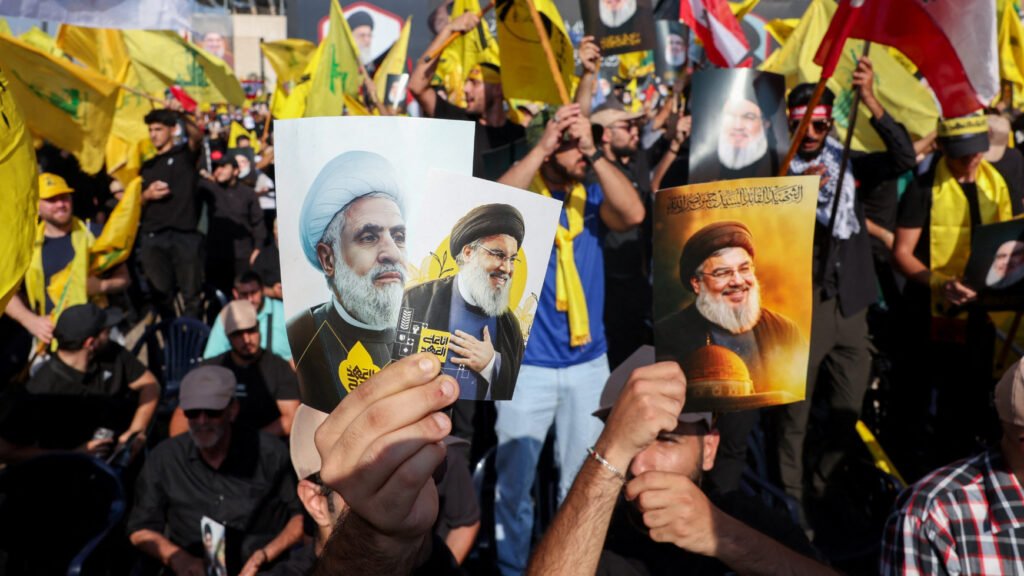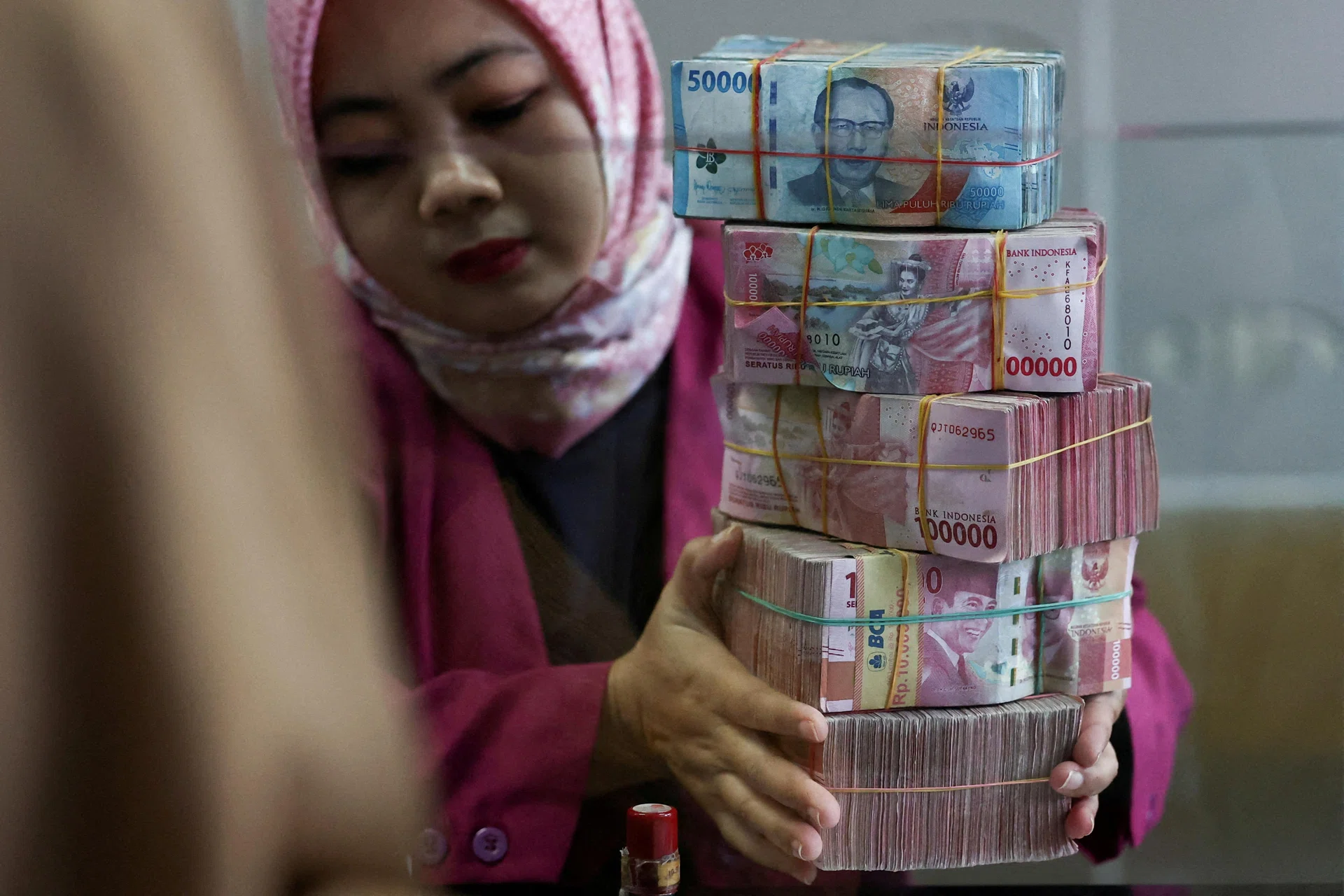Lebanon‘s Hezbollah has made overtures to Saudi Arabia after years of hostility, in a move to reposition the group amid shifting regional dynamics and growing concern over Israel‘s military actions.
In a televised address late last month, Hezbollah’s leader Naim Qassem called for “opening a new page” with Riyadh, urging a collective regional stance against what he described as the real threat to the Middle East: Israel.
“We assure you that the arms of the resistance are pointed at the Israeli enemy, not Lebanon, Saudi Arabia or any other place or entity in the world,” Qassem said.
The appeal marks a notable change in tone for Hezbollah, long at odds with Saudi Arabia over the group’s involvement in Syria, its alleged backing of Yemen’s Houthis, and the wider Iran-Saudi rivalry.
Tensions peaked in 2016 when the Gulf Cooperation Council, led by Riyadh, formally designated Hezbollah as a terrorist organisation.
New MEE newsletter: Jerusalem Dispatch
Sign up to get the latest insights and analysis on
Israel-Palestine, alongside Turkey Unpacked and other MEE newsletters
In June 2024, the Arab League removed Hezbollah from its list of designated terrorist organisations.
Sources familiar with the group’s thinking told Reuters that this new posture is not simply a Hezbollah initiative but part of a coordinated effort led by Tehran. Two Iranian sources, along with a third source close to Hezbollah, said Qassem’s comments were the result of quiet diplomatic efforts by Iranian officials to reduce tensions between Hezbollah and Saudi Arabia.
Michael Young, senior editor at the Malcolm H. Kerr Carnegie Middle East Center in Beirut, said the speech should be read as a message from Iran.
“I read Naim Qassem’s statement as essentially an Iranian message. Iran is signalling that when it comes to Hezbollah’s disarmament, the Lebanese must deal with Tehran,” he told Middle East Eye.
Young said Tehran sees the regional balance shifting, particularly with the increasing military role Israel is playing. That shift could present opportunities for unlikely alignments.
During a trip to Lebanon last month, Ali Larijani, secretary of Iran’s Supreme National Security Council, said: “I commend Sheikh Naim Qassem’s initiative and fully support it. Saudi Arabia is a sister state to us, and there are ongoing consultations between us and them.”
Larijani added that cooperation was essential in confronting a common enemy, calling Qassem’s position “absolutely correct”.
“There’s a perception in Iran that regional alignments are changing, that Israel is emerging as a hegemonic power and therefore the Saudis see Israel as a threat as well, so they have parallel interest against Israel as an enemy,” Young said.
“Iran still sees Hezbollah as a strategic card. It was once a strong regional asset. It’s been weakened, but they don’t want to lose it,” he added.
Saudi-Iranian rapprochement
Qassem’s remarks come amid a period of escalating Israeli activity across the region. Last month, in a major development, Israel struck the headquarters of Hamas’s political leadership in Qatar, where top officials were meeting to discuss a US-backed ceasefire proposal for Gaza.
‘Iran still sees Hezbollah as a strategic card. It was once a strong regional asset. It’s been weakened, but they don’t want to lose it’
– Michael Young, Carnegie Middle East Center
The strike signalled a new level of reach and risk in Israeli operations, fuelling anxiety in Gulf capitals already wary of regional spillover.
Lebanese political analyst Kassem Kassir, who is close to Hezbollah, said the group’s recent messaging is shaped by broader regional developments, including the Saudi-Iranian detente brokered by China in 2023.
“I confirm that the initiative came in light of challenges in the region and the Saudi-Iranian rapprochement,” Kassir said. “Hezbollah is ready to engage and is waiting for a response from the Saudi side.”
He recalled that Hezbollah had previously opened a line to Riyadh, with a delegation visiting Saudi Arabia in 2006, headed by Naim Qassem himself, who was then serving as deputy leader.
Saudi Arabia at that time allocated a total of $1.5bn to Lebanon.
But the relationship deteriorated with the outbreak of the wars in Yemen and Syria, and the rupture of diplomatic ties between Tehran and Riyadh.
The group’s willingness to publicly extend an olive branch comes amid mounting challenges at home. Lebanon has been grappling with one of the worst economic collapses in modern history, with the local currency having lost more than 98 percent of its value since 2019.
At the same time, Western governments and Arab powers have renewed calls for the disarmament of non-state actors in Lebanon as a precondition for releasing much-needed financial assistance, particularly in the wake of last year’s Israeli war on Lebanon, which caused widespread destruction.
Under intense US pressure, the Lebanese government in August adopted a proposal for Hezbollah’s disarmament, a step it had already listed among its goals in its January ministerial statement.
Hezbollah has condemned the move as a “surrender” to Israel, which continues to occupy at least five areas in southern Lebanon and carry out regular attacks across the south.
Though it has not launched any attacks against Israel since the ceasefire despite continued Israeli strikes, Hezbollah maintains that its weapons remain essential until Israel fully withdraws and ends its airspace violations and drone attacks.
‘Less interest in conflict’
Qassem’s insistence that Hezbollah’s weapons are directed solely at Israel was likely intended as a message not only to Saudi Arabia but also to Western governments weighing aid for Lebanon’s devastated areas, where Hezbollah remains highly popular.
Despite declaring victory before its supporters, Hezbollah suffered a major setback in last year’s war with Israel, losing several key political and military leaders, including Nasrallah, who was assassinated just days before Israeli forces invaded Lebanon.
It continues to face near-daily Israeli strikes that have killed dozens of its members and at least 103 civilians since the ceasefire announced last November. Hezbollah has not responded to these attacks.
But memories in the Gulf are long. In 2022, Hezbollah Secretary-General Hassan Nasrallah launched a scathing attack on the Saudi leadership, accusing it of spreading Islamic State (IS) ideology and enabling suicide bombings in Iraq.
“Your majesty, the terrorist is the one who exported IS ideology to the world,” Nasrallah said at the time.
Middle East Eye has reached out to Hezbollah for comment.
So far, Qassem’s overture has not elicited a public response from Saudi officials, though it has sparked debate in Lebanon. Critics argue that political parties should not conduct direct diplomacy with foreign states, insisting such matters should be handled at the state-to-state level.
Last month, Saudi Foreign Minister Prince Faisal bin Farhan addressed Lebanon at the United Nations General Assembly, saying: “Saudi Arabia stands with Lebanon, supports everything that strengthens its security and stability, and welcomes the efforts of the Lebanese state to implement the Taif Agreement (1989), affirm its sovereignty, and place weapons in the hands of the state and its legitimate institutions.”
Whether Saudi Arabia is willing to engage with Hezbollah remains unclear. But with regional alliances shifting and both Riyadh and Tehran recalibrating their strategies, Hezbollah’s message may not be dismissed outright.
“The Iranians now have less interest in staying in conflict with Saudi Arabia,” Young said.










